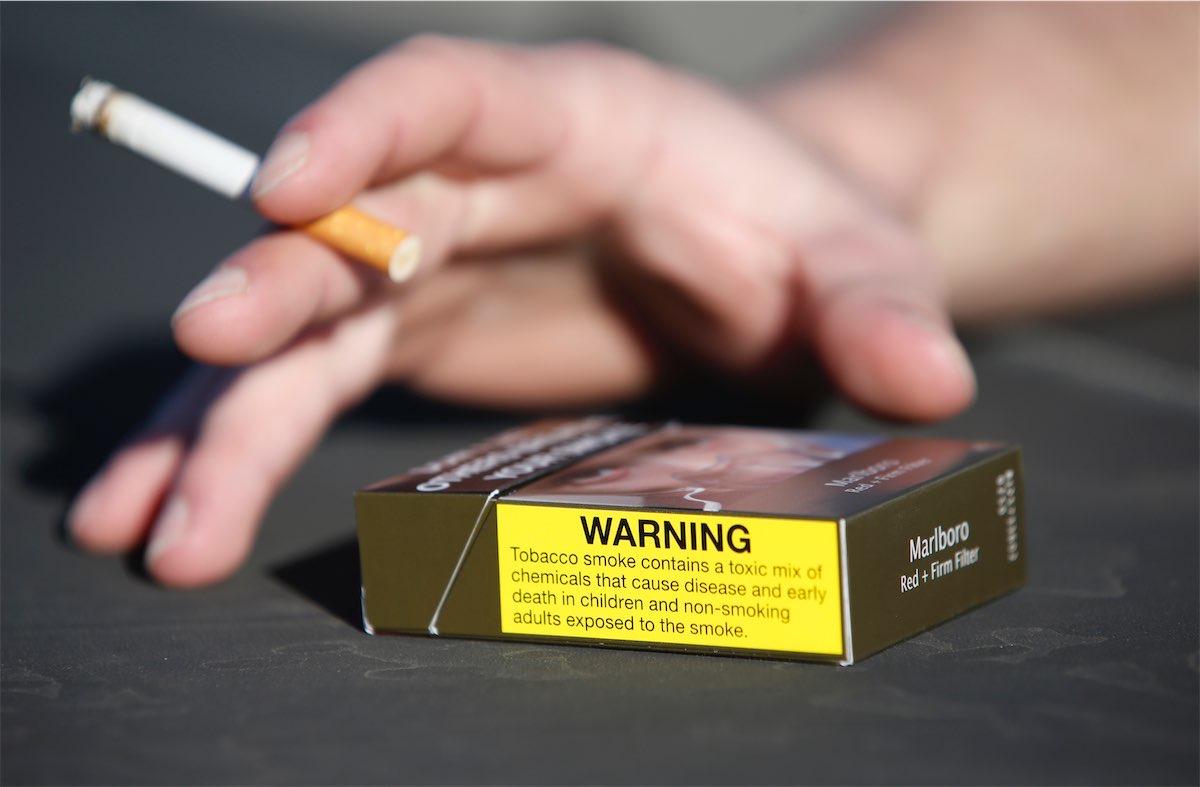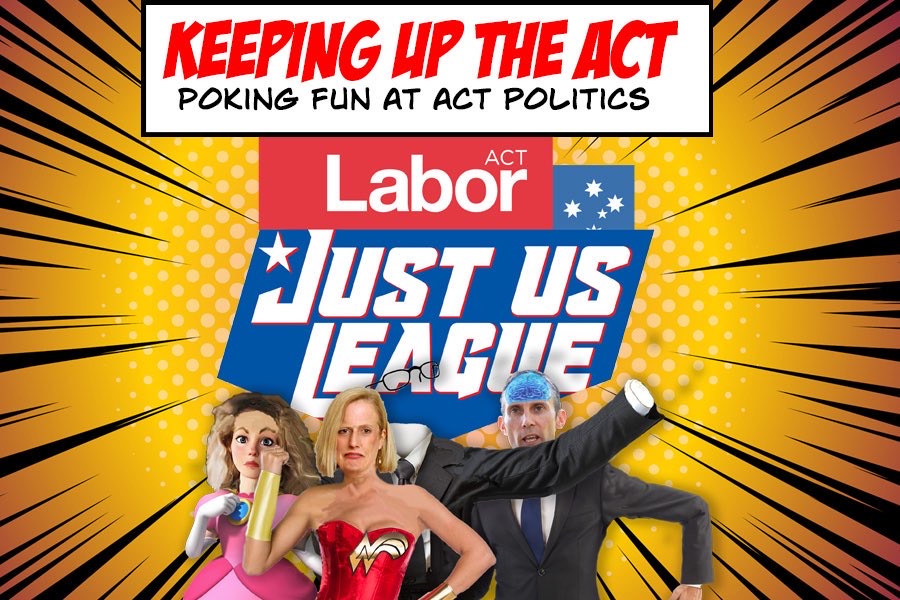
HUGH SELBY outlines some of the money issues that may arise if Senator Linda Reynolds wins her defamation case against Brittany Higgins. Once read, he says, you can explain to anyone else wondering: “Why bother with this expensive litigation if, even if you win, there’s no money in the tin?”
In the months before the present hearing there were reports of court action by Senator Linda Reynolds’ lawyers to obtain the details of a trust set up by Brittany Higgins following the Commonwealth Government payout to her of around $2 million that was agreed just before Christmas 2022.

Apparently, the senator’s lawyers were successful, but by court order the information they received cannot be shared or reported.
This means that there is basic information that we do not have: for example, we do not know the terms of the document setting up the trust, nor do we know the amount of Ms Higgins’ savings or the current balance of the trust fund.
There is also the possibility, again unreported, that Ms Higgins has agreed that if she loses to the senator that she will use the funds in the Trust, as necessary, to meet whatever she is ordered to pay.
What follows assumes that there is no such agreement yet.
On July 18, journalist Ms Samantha Maiden, writing for the online news.com.au shared: “A simple Google search confirms that The Trustee for Brittany Higgins Protective Trust has been set up… since February 9, 2023. The entity type is described as a ‘Discretionary Investment Trust’ and the ‘main source of income of the discretionary trust is from investment activities’.”
The settlement meeting in which the payout was agreed was just before Christmas 2022, that is, some six weeks earlier. Given the usual Christmas/January shutdown, it seems that people moved quickly to set it up by February 9 2023.
Ms Maiden also tells us in the same article: “Its address and principal place of business is listed as William Buck (NSW) Pty Ltd in Sydney, NSW. William Buck is a leading firm of accountants and advisers with offices across Australia ….”
Quite why Buck’s Sydney office, rather than a Brisbane one (they have an office in Queen Street), was chosen I do not know. But, whatever the reason, it probably follows that it is the NSW Trustee Act 1925 that applies. I say “probably” because the Trust Deed (which we can’t see) may specify another Australian state or territory law is to govern its interpretation.
‘Sham’ claims have little chance of success
There have been suggestions, though I don’t know on what reliable basis, that the trust is a sham. If so, a court could possibly dissolve the trust.
The 2013 NSW appellate case of Lewis v Condon [2013] NSWCA 204 shows that such an outcome is unlikely.
Justice Leeming pointed out in that case: “Although the… Trust was created with an intent to deceive others, the primary judge was right to conclude that it was not a sham trust. It did not (and could not) subsequently become a sham.”
Justice Leeming explores that summary statement in detail. Referring to earlier authoritative decisions he notes, for example, that:
- Sham is an ambiguous term, such that there is uncertainty in both its meaning and application;
- Sham refers to steps which take the form of a legally effective transaction but which the parties intend should not have the apparent, or any, legal consequences;
- A court will only look behind a transaction’s ostensible validity if there is a good reason to do so, and ‘good reason’ is a high threshold, since a premium is placed on commercial certainty;
- The limited notion of what constitutes a sham does not swallow up the large class of other transactions entered into for a purpose regarded as improper by the law; and,
- Every case of shamming intent involves a finding of intentional deception as to the effect of a document, but not every case of improper purpose is a sham.
The Trust was created in early February 2023 which seems to predate the senator’s defamation action that relies on comments allegedly made by Ms Higgins in both 2022 and 2023.
It Is essential to know the actual dates of any “notices of concern” (a mandatory step pre litigation in defamation claims) sent to Ms Higgins by claimants, and – indeed – any claims pressed by other actual or likely to be creditors. If, as seems likely, the senator’s lawyers sent the notice to Ms Higgins only AFTER the trust was established, then the notion of a deliberate approach to shut out the senator’s claim will not be proved.
That is unless a record has been uncovered among the Higgins’ “side”, along the lines of: “Someone is going to come out of their cave and try to take some of this treasure, so we’d better hide it in plain sight, in a trust”. That would bring a happy gleam to the faces of the senator’s lawyers.
Might there be another way?
Not being able to prove a sham is not the end of it. If Senator Reynolds is successful then there will be an amount of money that Ms Higgins will be ordered to pay for the damage done to the senator’s reputation. As well, Ms Higgins will be liable for most of the senator’s legal costs.
If Ms Higgins cannot pay those amounts from her savings, then being both a trustee and a beneficiary of the trust she can access the trust funds to pay whatever her other savings do not cover.
Although Ms Higgins expects to win this case, it could be that if she loses she will act quickly to pay all that is owing and move on with her life.
However, suppose she refuses to use the trust funds and her other savings are not enough to pay her debts. What then can the senator do?
If the NSW Trustee Act, 1925 is the applicable law then here are some relevant sections and how they work together to give the senator a chance to recover.
We start with Section 92 which sets out the persons entitled to apply:
(1) An order… for the appointment of a new trustee or concerning any property subject to a trust may be made on the application of any person interested in the property.
This gives the Senator the right to apply to the court as a “person interested”. But for what will she apply?
If there is no apparent sham, then there is still a way to get at the trust funds. Section 70 provides, inter alia:
(1) The Court may make an order for the appointment of a new trustee or new trustees either in substitution for or in addition to any existing trustee or trustees.
(2) The appointment may be made whenever it is expedient to appoint a new trustee or new trustees.
(3) In particular… the Court may make an order for the appointment of a new trustee in substitution for a trustee who is… a bankrupt.
If the senator is successful then the prospect of Ms Higgins becoming a bankrupt, either on her own application, or that of a creditor (such as the Senator) is high.
Let’s assume that Ms Higgins paid solicitor Leon Zwier from the top-tier Melbourne law firm for his legal advice up to and including the Lehrmann/10 defamation proceedings. If so, at the “usual rates” it would have been costly.
To that must be added her legal costs for the Reynolds case, Reynolds’ legal costs on an indemnity basis (that’s what the WA Defamation Act provides), and if there is anything left over – something towards the verdict amount awarded to the senator.
Once Ms Higgins enters bankruptcy the court can then appoint one or more persons to replace her and outnumber her father (the other trustee).
Whether or not the trust deed allows the trustees to use the funds to pay out a litigation creditor we do not know. If it does, problem solved. If it does not, then it’s back to court seeking orders to allow the funds to be paid out.
Section 71. Vesting orders, provides:
(1) The court may make an order… called a vesting order, which shall have effect as provided in section 78 (see below).
(2) A vesting order may be made in any of the following cases, namely—
(o) where property is vested in a trustee… either solely or jointly with any other person, and it appears to the court to be expedient to make a vesting order…..
(4) Where the order is consequential on the appointment of a new trustee, the property shall be vested in the persons who, on the appointment are the trustees….
(6) Subject to the provisions of subsection (4), the vesting order may vest the property in any such person in any such manner and for any … interest as the court may direct, or may release or dispose of any contingent right to such person as the court may direct….
Which takes us, finally, to Section 78, Effect of Vesting Order:
(2) The vesting order shall have the same effect as if the trustee or other person… to whose rights, or supposed rights, the provisions of this part respectively relate, had been an ascertained and existing person of full capacity, and had executed… a release to the effect intended by the order.
That all seems straightforward (despite the opening sentence), but I doubt it’s that simple. There are excellent lawyers who specialise in trusts and bankruptcy. One or more of them may write to point out the naivete of the above. So be it.
If you are thinking that this is a lawyers’ picnic of hearty tax invoices, I have nothing to counter that thought.
Former barrister Hugh Selby is the CityNews legal columnist. His free podcasts on “Witness Essentials” and “Advocacy in court: preparation and performance” can be heard on the best known podcast sites.
Who can be trusted?
In a world of spin and confusion, there’s never been a more important time to support independent journalism in Canberra.
If you trust our work online and want to enforce the power of independent voices, I invite you to make a small contribution.
Every dollar of support is invested back into our journalism to help keep citynews.com.au strong and free.
Thank you,
Ian Meikle, editor









Leave a Reply